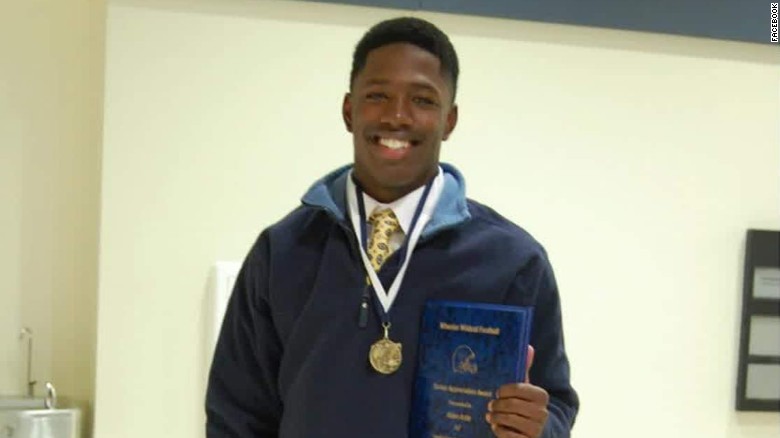After months of pressing to get criminal charges filed over her rape allegations, a University of North Carolina sophomore stepped in front of a throng of TV cameras this week.
Delaney Robinson, 19, revealed her name and told the public that a UNC football player had raped her. She recounted in detail what happened after reporting the allegations to authorities.
She accused investigators and the university of dragging their feet and treating her like a suspect.
“If this has happened to me, who else has been hurt and too scared to come forward?” Robinson asked. “What other cases are being swept under the rug by the university?”
On Wednesday, Allen Artis, the student whom Robinson has accused of rape, turned himself in at a magistrate’s court. He was charged Tuesday with sexual battery and assault on a female, both misdemeanors. His arrest warrant states he is accused of lying on top of Robinson, pinning her down with his weight as he raped her.
But the district attorney’s office did not bring the charges. In North Carolina, anyone can go before a magistrate and swear to criminal acts that they say happened against them. A magistrate then determines whether there is enough evidence to go forward.
Artis has not responded to the allegations. The office of his attorney, Sam Coleman, told CNN it had no comment.
UNC said it could not address allegations because of federal privacy law.
Why she spoke out
Typically, media outlets, including CNN, do not name alleged victims of sexual assault. They usually have remained anonymous, using pseudonyms such as Jane Doe to protect their privacy.
In this case, Robinson came out publicly. She and her attorney, Denise Branch, also are set to appear Thursday on CNN’s “Legal View.”
Women who speak out such as Robinson say they are giving up something designed to protect them — their anonymity — to pursue justice and help others in the future.
When asked what propelled her to step forward, Robinson said earlier this week: “The biggest reason why I thought it was necessary to do this is because if the student before me had the capability to come forward, I might not be in the position I am today. I can’t continue on doing this knowing that the student who comes after me will be in this position.”
Other students have shed their anonymity
Women who have gone public to share stories of rape or sexual assault often voice frustrations over what they perceive as authorities’ failure to investigate properly.
“I think it shows the bigger problem we have with the criminal justice system not taking rape very seriously,” said Andrea Pino, co-author of “We Believe You, Survivors of Campus Sexual Assault Speak Out.”
Other students have shed their anonymity, too. College student Cecilia Carreras published an account of how the University of Richmond handled her report of rape by an athlete. She wrote on The Huffington Post that she went public in hopes the university would improve. The school disputed her account as “inaccurate” in a campuswide email.
At Columbia University, student Emma Sulkowicz went public with her 2013 rape allegations and carried a mattress around the Manhattan campus — including to her commencement ceremony — to protest the school’s handling of her complaint. She has said she hoped to show how “flawed” the university disciplinary system was when it came to sexual misconduct cases.



